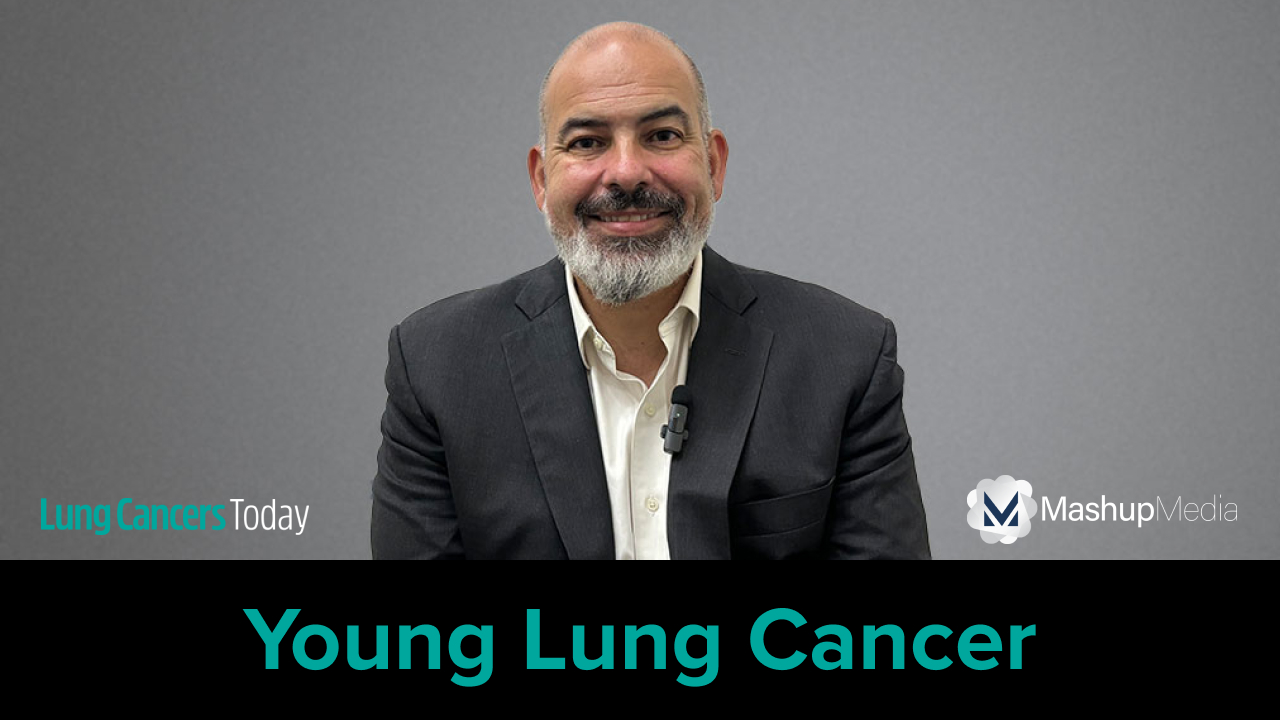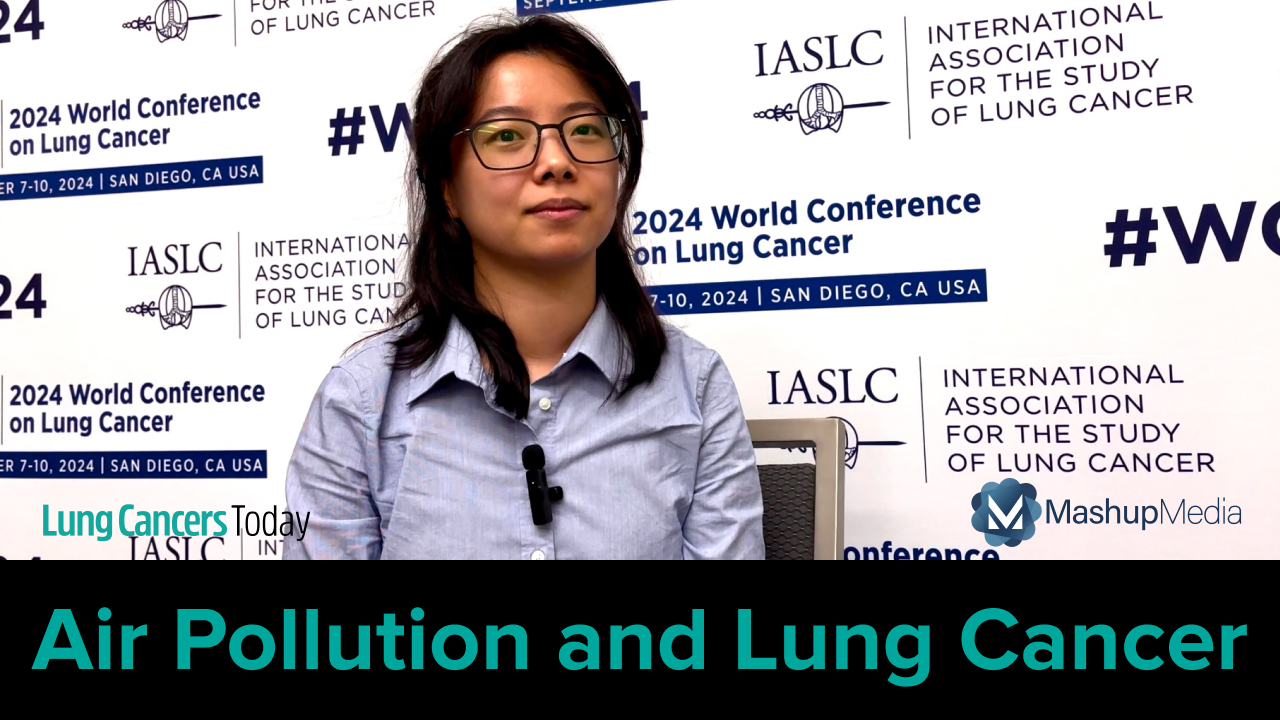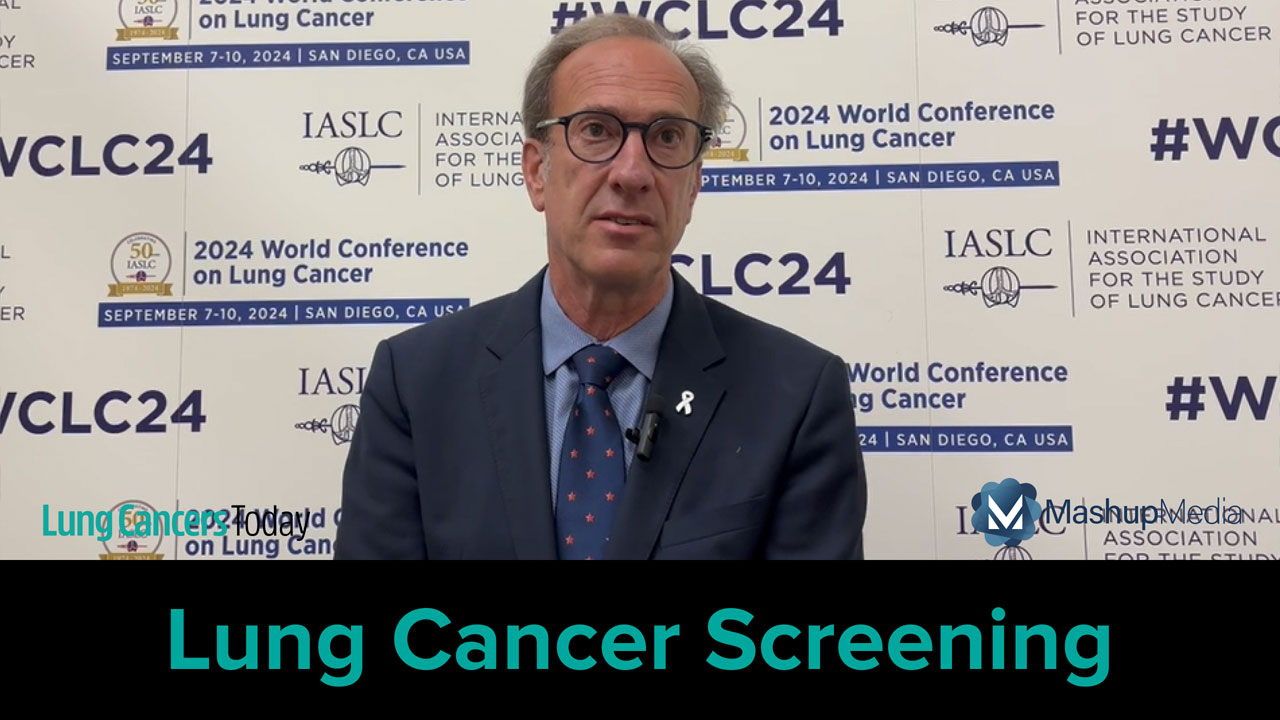Sun Choi Discusses Research Findings on Tobacco Control, Smoking Cessation Content at Major Oncology Meetings
By Sun Choi, Laura Litwin, Cecilia Brown - Last Updated: October 18, 2024Sun Choi, an undergraduate research student of the Princess Margaret Cancer Center in Toronto, Canada, joined Lung Cancers Today at the IASLC 2024 World Conference on Lung Cancer to discuss her research on tobacco control and smoking cessation.
“Smoking is a well understood risk factor for cancer, and especially lung cancer,” she said. “But despite knowing how important tobacco control and smoking cessation is in cancer care, we don’t know how much it’s emphasized within cancer research, especially within these oncology meetings.”
The 5-year scoping review provided insights on the different abstracts and educational content presented at 12 major oncology meetings based on their different themes, from specialized radiation, surgical, and disease site-specific meetings, to those in general oncology. Choi explained that the content included in the review was screened to ensure it primarily focused on tobacco control, smoking cessation, and cancer. The researchers used descriptive statistics to characterize their findings.
“From 2018 to 2023, across the 12 major oncology meetings that we looked at, there were over 120,000 abstracts and about 26,000 educational sessions that were presented. And in terms of which ones met our inclusion criteria, around 421 abstracts met our inclusion criteria, while 119 education sessions met our inclusion criteria,” she said.
The study showed there was limited content about tobacco control and smoking cessation presented across all oncology meetings. However, general oncology and disease site-specific meetings saw a higher number of abstracts and educational sessions presented.
“When we look further into the types of abstracts, we found that there was quite an even distribution of the abstract focus and themes that were represented, such that there was a third that looked at the impact of smoking on cancer outcomes, as well as another third that looked at smoking on cancer risk, and another third looked at smoking cessation,” she said.
Smoking and its effect on cancer was explored most by abstracts that focused on specific disease sites, such as head, neck, and lung cancers. The researchers also measured the geographic distributions of the first authors from the eligible abstracts.
“We found that there was an uneven distribution globally, such that around 80% of the abstract authors came from high-income countries and 21% came from middle-income countries,” Choi said.
Oncology meetings also saw a gap in first author representation from middle to low-income countries, underscoring the need for strategies to include more abstracts and educational sessions on the topics of tobacco control and smoking cessation from those geographic regions.
“It may be important to develop newer strategies to help encourage more research in tobacco control and smoking cessation in oncology among the developing countries because they can provide some important insight into tobacco control and oncology, as well,” she said.







 © 2025 Mashup Media, LLC, a Formedics Property. All Rights Reserved.
© 2025 Mashup Media, LLC, a Formedics Property. All Rights Reserved.